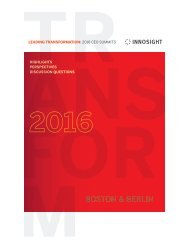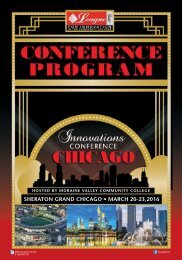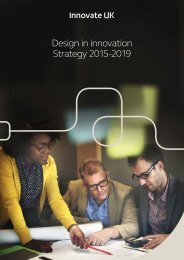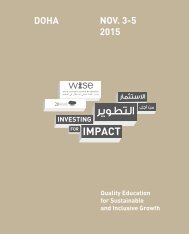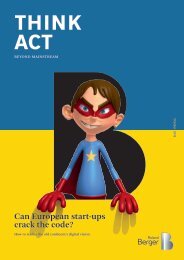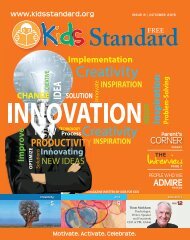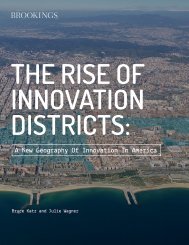TECHNOLOGY AT WORK
1Oclobi
1Oclobi
Create successful ePaper yourself
Turn your PDF publications into a flip-book with our unique Google optimized e-Paper software.
February 2015<br />
Citi GPS: Global Perspectives & Solutions<br />
3<br />
<strong>TECHNOLOGY</strong> <strong>AT</strong> <strong>WORK</strong><br />
The Future of Innovation and Employment<br />
It is a pleasure to introduce Technology at Work: The Future of Innovation and<br />
Employment. This report is the second in a long-term series of Citi GPS reports coproduced<br />
by Citi and the Oxford Martin School at the University of Oxford in order to<br />
explore some of the most pressing global challenges of the 21 st century. This report<br />
follows the launch report in the Citi Oxford Martin School collaboration that was<br />
entitled Future Opportunities, Future Shocks: Key Trends Shaping the Global<br />
Economy and Society which outlined not just the key trends that we see shaping<br />
global markets, society and technology but also the potential risks and shocks to the<br />
global system.<br />
In this new report, Oxford Martin School academics Dr. Carl Benedikt Frey and<br />
Associate Professor Michael Osborne examine a pressing subject increasingly in<br />
the headlines: the changing nature of innovation and work, and the associated<br />
implications for the future of employment and society more widely. We are also very<br />
pleased to say that this report marks the launch of the Oxford Martin Programme on<br />
Technology and Employment, a long-term programme of research at the University<br />
of Oxford supported by Citi that will focus on many of the areas covered in this<br />
report.<br />
The digital age is set to cause more upheaval than previous technological<br />
revolutions because change is happening faster than ever before and is<br />
fundamentally altering the way we live and work. Technology is now enabling not<br />
just the automation of repetitive tasks but also cognitive tasks involving subtle and<br />
non-routine judgment. Through robotics, big data, the digitisation of industries and<br />
the Internet of Things the nature of occupations and whole industries is changing<br />
and also the dynamics of economic growth. The economic benefits of recent<br />
technological developments are not being widely shared. Productivity has increased<br />
globally but real median wages have stagnated in many OECD countries leading to<br />
significant declines in labour’s share of GDP.<br />
Writing in partnership with Citi analysts, Carl Frey and Michael Osborne<br />
comprehensively assess the extent of automation and its effects on the labour<br />
market across industries and countries. Crucially, in addition to analysing the risks<br />
and opportunities of the digital era, the authors propose pathways and strategies<br />
that can help governments and societies adapt successfully.<br />
We hope that you enjoy this Citi GPS report. Going forward, further reports will<br />
share the results of the exciting collaboration between Citi and the Oxford Martin<br />
School.<br />
Andrew Pitt<br />
Global Head of Research<br />
Citi<br />
Ian Goldin<br />
Director of the Oxford Martin School<br />
Professor of Globalisation & Development<br />
University of Oxford<br />
© 2015 Citigroup



